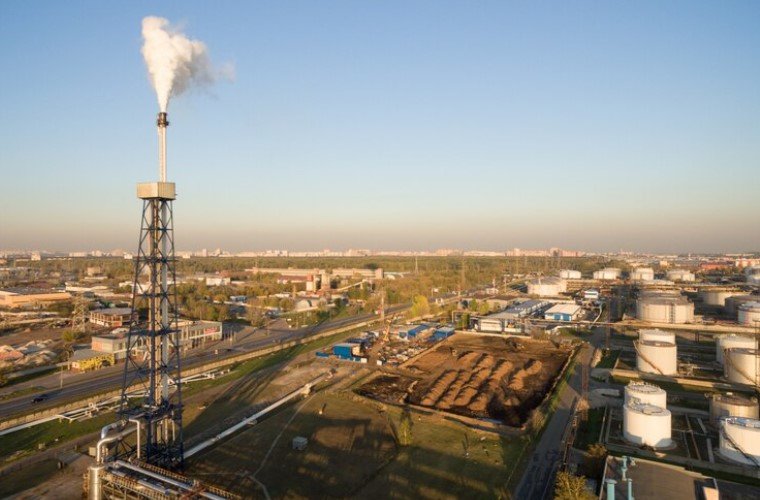TriGen Energy: A Dutch Company Pioneering Carbon Capture Solutions for the Oil Industry

The oil industry is facing increasing pressure to reduce its carbon emissions and contribute to the global effort to combat climate change. While some companies are investing in renewable energy sources and diversifying their portfolios, others are looking for ways to make their existing operations more sustainable and efficient. One such company is TriGen Energy BV, a Dutch engineering and project development group that specializes in carbon capture solutions for the oil industry.

What is carbon capture, and why is it important?
Carbon capture is a process that involves capturing carbon dioxide (CO2) from the flue gas of power plants or industrial facilities and either using it for other purposes or storing it underground in geological formations. Carbon capture can help reduce the amount of CO2 that is released into the atmosphere, which is one of the main causes of global warming. According to the International Energy Agency (IEA), carbon capture and storage (CCS) could provide 15% of the cumulative emissions reductions needed by 2070 to reach net-zero emissions.
However, carbon capture is not a silver-bullet solution. It is still a relatively expensive and complex technology that requires a lot of energy and infrastructure. Moreover, it does not address the root cause of the problem, which is the reliance on fossil fuels for energy production. Therefore, carbon capture should be seen as a complementary measure to other strategies, such as increasing energy efficiency, switching to low-carbon fuels, and deploying renewable energy sources.
How does TriGen Energy provide carbon capture solutions for the oil industry?
TriGen Energy is a company that focuses on developing and implementing carbon capture solutions for the oil industry, especially for enhanced oil recovery (EOR) applications. EOR is a technique that uses CO2 or other substances to be injected into oil reservoirs to increase the pressure and recover more oil. EOR can improve the oil recovery factor by up to 20%, which means more oil can be extracted from the same wells. EOR can also provide a market and a revenue stream for the captured CO2, which can help offset the costs of carbon capture.
TriGen Energy has extensive experience in designing, building, and operating oxy-fuel power plants, which are power plants that use pure oxygen instead of air for combustion. Oxy-fuel power plants produce a flue gas that is mainly composed of CO2 and water, which makes it easier to separate and capture the CO2. TriGen Energy also has expertise in solvent-based carbon capture technologies, which use chemicals to absorb the CO2 from the flue gas and then release it in a concentrated form.
TriGen Energy has been involved in several carbon capture projects around the world, such as the Hestia project in Texas, the Valverde project in Mexico, and the K12-B project in the Netherlands. These projects aim to capture CO2 from various sources, such as natural gas power plants, refineries, and offshore platforms, and use it for EOR or store it in depleted oil and gas fields.
What are the benefits and challenges of TriGen Energy’s carbon capture solutions?
TriGen Energy’s carbon capture solutions offer several benefits for the oil industry and the environment. First, they can help reduce the carbon footprint of the oil industry by preventing CO2 from reaching the atmosphere. Second, they can enhance oil production and extend the life of the oil fields by using CO2 for EOR. Third, they can create new business opportunities and revenue streams for the oil industry by selling the captured CO2 or the credits associated with it.
However, TriGen Energy’s carbon capture solutions also face some challenges and limitations. One of them is the high cost and complexity of the technology, which requires a lot of capital investment, operational expenditure, and technical expertise. Another challenge is the regulatory and social acceptance of the technology, which depends on the availability of incentives, standards, and policies that support and promote carbon capture. A third challenge is the environmental impact of the technology, which may entail some risks and trade-offs, such as the potential leakage of CO2 from the storage sites, increased water consumption and pollution, and continued dependence on fossil fuels.
Conclusion
TriGen Energy is a Dutch company that provides carbon capture solutions for the oil industry using oxy-fuel and solvent-based technologies. The company’s solutions can help reduce the carbon emissions of the oil industry and enhance oil recovery by using the captured CO2 for EOR or storing it underground. However, the company’s solutions also face some challenges and limitations, such as the high cost and complexity of the technology, the regulatory and social barriers, and the environmental impact and trade-offs. Therefore, TriGen Energy’s carbon capture solutions should be seen as a complementary measure to other strategies that aim to decarbonize the energy sector and combat climate change.




